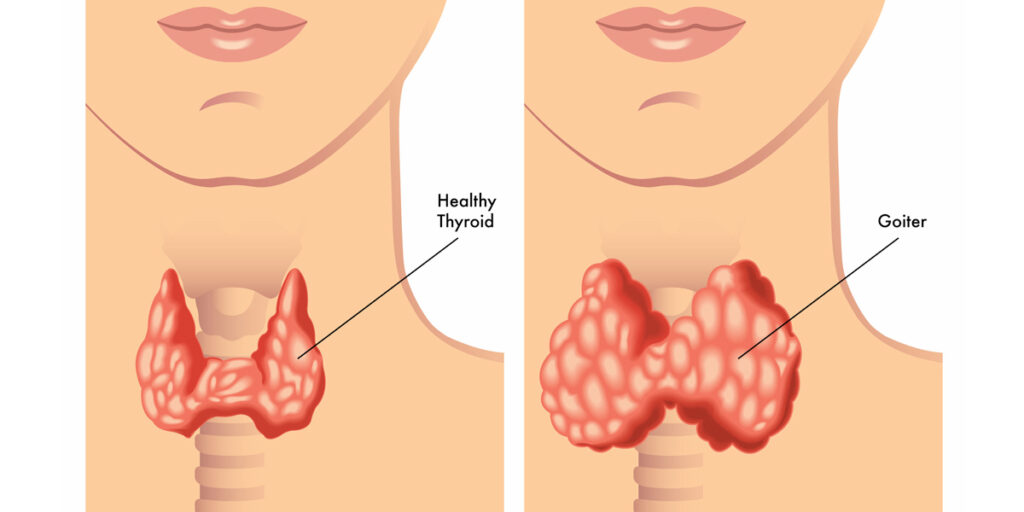Treatment – Procedure, Cost And Side Effects
What is Hypothyroidism?
Hypothyroidism is a medical condition that occurs when your thyroid gland does not produce enough thyroid hormones. The thyroid gland is located in lower front portions of your neck. The thyroid hormones can affect every organ including heart, brain and skin tissues. The main purpose of the thyroid gland is to maintain the metabolism, growth and development of the body.
Hypothyroidism vs Hyperthyroidism
In hypothyroidism, the thyroid glands are not able to produce enough hormones thus it does not function in the proper way. On the other hand, hyperthyroidism occurs when there is too much production of thyroxine (T4) and triiodothyronine (T3). In hyperthyroidism, there is a fast heartbeat, anxiety, weight loss, etc.
What are the symptoms of hypothyroidism?
In the early stages of hypothyroidism, there may not be noticeable symptoms but overtime many health problems like joint pain, infertility, obesity, and heart diseases are caused due to this. The signs and symptoms are different among people depending upon the hormonal deficiency.
Hypothyroidism symptoms include:
- Weight gain
- Fatigue
- Constipation
- Dry skin
- Muscles Weakness
- The rise in blood and cholesterol level
- Depression
- Thinning of hair
- Enlargement of the thyroid gland
- Impaired memory
What causes hypothyroidism?
The main cause of hypothyroid is when enough hormones are not produced by the thyroid gland and there is a chemical imbalance in the body. There can be enormous causes including hyperthyroidism treatments, thyroid surgery, autoimmune disease, radiation therapy and certain medications.

Hypothyroidism can be caused by factors like:
- Autoimmune Disease:
- Over-response to hypothyroidism:
- Thyroid surgery:
- Radiation Therapy:
- Hypothyroidism Medications:
How to diagnose hypothyroidism?
Generally, it can be diagnosed when a person is feeling very tired, dry skin, constipation, and weight gain. Sometimes, if a person is also had thyroid or goitre earlier then it can be diagnosed.
Blood Test: A blood test is the most important factor in the diagnosis.
How to treat hypothyroidism?
Hypothyroidism is commonly treated by medications and pills to re-inculcate the hormone levels. You also must have regular health checkups with your doctor to know your thyroid levels. Thyroid disorders, if untreated can lead to heart problems, joint pain, and obesity. In some cases, it can even lead to infertility. In pregnant women, it can affect the fetus. The symptoms should never be ignored, and you have to consult your physician immediately when you notice them. The treatment would also focus on giving you essential iodine levels to your body.
Too little iodine in the diet can also sometimes lead to the Hypothyroidism condition. The basic and foremost treatment involves the daily medication of synthetic thyroid hormone levothyroxine (Levothroid, Synthroid, others). This is an oral medication and is used to restore hormone levels and reverses the signs and symptoms. The treatment would start to take effect within weeks and you can notice visible changes within his period. It is an ongoing condition and treatment– meaning that you have to check frequently with your doctor for your thyroid levels. Accordingly, you doctor can reduce the dose or increase the dosages of the thyroid medications.
Who would need a thyroid treatment?
Any individual who is affected by the hypothyroidism can qualify for the treatment. The treatment can work best when diagnosed in the initial stages. Hence, if you feel you have the symptoms make sure you have a checkup with your doctor for the thyroid disorders. Before undertaking the pills ensure that your doctor knows about your physical condition and your allergic levels. If you are under medications for certain other conditions, do let your know doctor know about it.
Who is not eligible for the treatment?
The treatment can be eligible and undergone by any individual. Before you take the treatment, however, do let your doctor know about the medicines, you are undertaking currently. The thyroid medications can cause some reaction to the pills you are taking.
How long does it take to recover from hypothyroidism treatment?
The recovery depends on how well your body responds to the treatment. Since your thyroid levels can increase gradually, it takes some time before you are fully recovered. The dosages of the pills and the medications have to be increased or decreased as per your thyroid needs. Do consult with your doctor regularly and have periodic checkups. As for surgery, most of the treatments are done using precision laser and your recovery period can also be very minimal.
What is the best diet for hypothyroidism?
A person gets hypothyroidism when the two thyroid hormones that are triiodothyronine (T3) and thyroxine (T4), the level is very low. Although only food is not a matter to help change the levels, it can surely help improving the absorption level of the body to absorb these hormones. Changing your diet can always help to do that.
Foods to eat with hypothyroidism are:
- Food rich in nutrients:
- Antioxidant-rich fruits and vegetables
- Selenium
- Tyrosine
Foods to avoid with hypothyroidism are:
A diet that should be avoided in hypothyroidism are Soy, iodine-rich food, iron and calcium supplements high-fiber food and certain vegetables like cabbage, broccoli, spinach, kale, sprouts as that contain medication of thyroid absorption.
What are the natural remedies for hypothyroidism?
Natural remedies and alternative medicines are used to remove the root cause of thyroid. Most of the times it is caused due to bad eating habits, stress or missing food.
What are the complications of hypothyroidism?
If hypothyroidism is not treated properly then it can increase the risk of complications in life. Complications like:
- Hypothyroidism in children: Newborn babies can get it from their mothers. If a pregnant woman is thyroid positive and she gives birth to a baby then the baby may have some development issues of the brain or any physical part. But all these problems are detected shortly after birth and newborn baby can be cured.
- Goitre
- Heart Problems

Leave a Reply